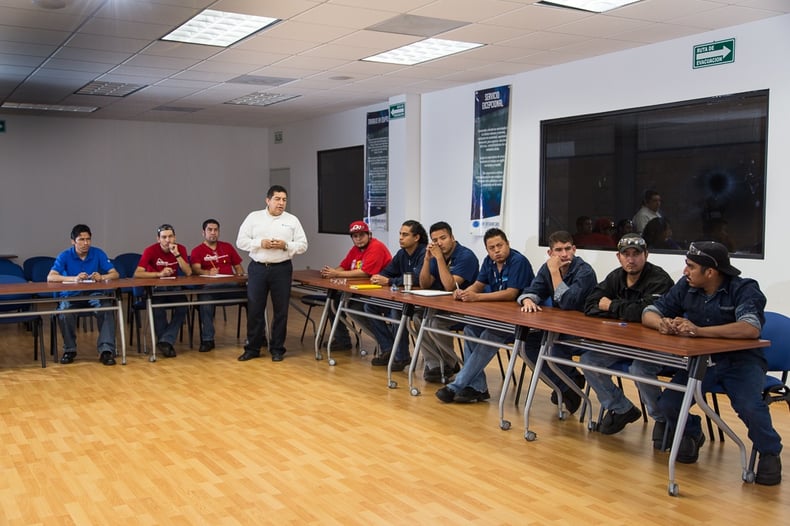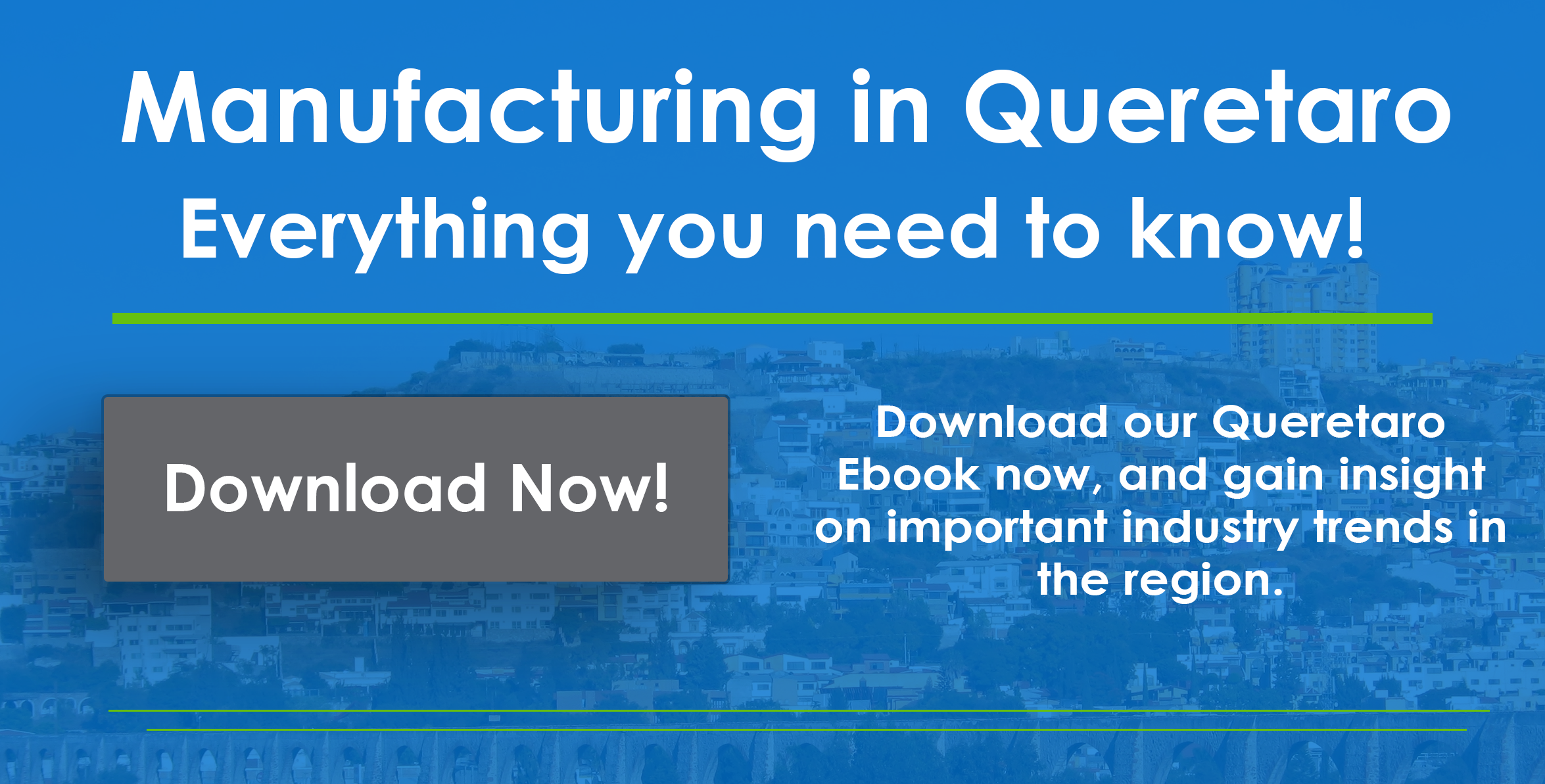The industrial sector has become part of the professional culture in Queretaro as automotive, aerospace, and other manufacturing industries became a natural career endeavor for the population. Queretaro’s higher education, infrastructure, and investment in manufacturing has created mutually beneficial opportunities for employees and employers.
Education
Over the past decade, Queretaro has been investing in technical and higher education to fill the engineering and manufacturing positions that were created by industrial growth. The state has been ranked 1st in the country for its education levels, and the capital, Santiago de Queretaro, was named the third most competitive city in Mexico. There are more than 2,000 remedial education facilities and 115 high schools in Queretaro, in addition to 22 universities and technical trade schools. The plan to increase the skill capacity for industry workers and implement an education pipeline to maintain a highly functional workforce was implemented by advancing new programs and universities including building the Universidad Aeronáutica en Querétaro (UNAQ).
Access to educational programs fosters talent for the manufacturing industry including knowledge in electrical engineering, manufacturing systems, floor maintenance, and information communication technologies to name a few. During the 2015-2016 school year, tech colleges show 1,614 students completing studies in engineering, manufacturing, and construction, and 2,973 students completed the same studies at the undergraduate level. The universities and colleges contributing to the manufacturing talent are, Universidad Tecnológica de Querétaro (Uteq), Universidad Autónoma de Querétaro (UAQ), Universidad Aeronáutica en Querétaro (UNAQ), Instituto Tecnológico de Estudios Superiores de Monterrey (ITESM), among others.
Local Investment
The quality of life in Queretaro has increased immensely with the help of foreign investment, enabling a productive industry cultivated by a highly educated workforce. In 2005 Bombardier decided to invest in the state because of its educated population and government support. The Brookings Institute states, “Both state leaders and local residents credit the 2005 arrival of Bombardier, the Canadian aerospace and transportation manufacturer, as the catalytic investment that put Querétaro on the global map.” The development of the manufacturing industry has been an important driver to the state’s economic growth, which has been slowly rising since 2005.
Foreign investment in UNAQ, Mexico’s first and only aeronautic university, supports the aerospace sector by graduating students at various skill levels. The courses provided are custom to industry needs and trends. UNAQ also works with an aeronautic platform in the airport that influences cooperation between France and Mexico to offer more educational programs with DGAC and EASA recognition.

Characteristics
Queretaro is in a strategic location close to Mexico city, and has an infrastructure connecting to various cities in the U.S. and Canada. The state has close to 1.9 million people mainly living in the capital, and is one of the safest states in the country. The average age is 26 years old and 54% of the state’s residents live in metropolitan areas, which make economic contribution and job stability important. There are about 10,300 foreign residents in Queretaro including international schools of all grade levels.
The aptitude for technical and industrial skills is a normal part of the workforce culture. Queretaro has 179,108 people working in the manufacturing industry, which is 2.2% of the overall manufacturing workforce in Mexico. Because the population is keen on high skilled tasks, Queretaro has an annual turnover rate of 8% and 10%. Maquila Portal stated that Kazunari Takagi, CEO of Mitsubishi Electric in Mexico “expressed that the company's development in Queretaro is due to the skilled labor available in the state, its committed people, and a very low turnover rate.” The industrial hub in Queretaro and its region have kept a competitive wage advantage that attracts many companies.
Wages
Technical training centers and highly ranked schools enable Queretaro’s workforce to thrive in any skill set. The state holds the highest wage levels in the Bajio region for unskilled work at around $280 a month, un-fringed. Average annual labor costs for production employees are from $3,358 (unskilled) and $6,003 (machinists). Direct and indirect labor also average low minimum wages from $4 to $6 a day. Wages can vary depending on the skill set and the positions needed, especially as the value Mexican peso drops against the USD. It is also smart to account for fully fringed hourly wages when planning out labor costs for a production line.
Queretaro’s talented workforce manufactures quality products in one of the safest states in the country. As one of the top economic driving forces in Mexico, Queretaro upholds a reputation of a highly educated population with a welcoming culture to match.
Subscribe
Sign up and stay informed with tips, updates, and best practices for manufacturing in Mexico.



.jpg)

.jpg)
